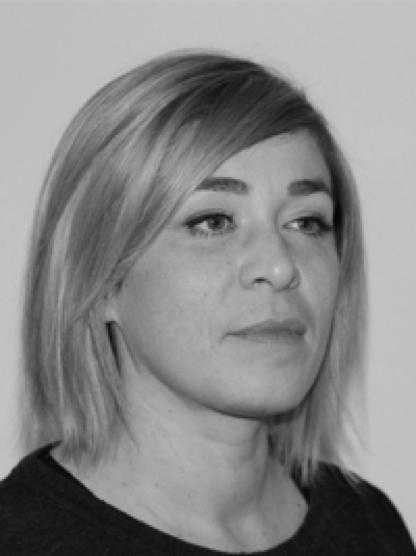Silvia Imbesi

XXXIII Cycle - (A.A. 2017-2018)
IDAUP
Home Institution: University of Ferrara
Scholarship
Curriculum: Architecture (ICAR13)
Research Topic: Inclusive Design
Tutor DA-UNIFE: Giuseppe Mincolelli
Tutor Polis University:
Nationality: Italian
Email: mbsslv@unife.it
Profile
Biography
Silvia Imbesi is an architect graduated in Ferrara in 2008, with a master degree thesis entitled “The roots of the tower: requalification of Ferrara’s skyscraper and its surroundings”. In 2009 she enrolls at the Product Design course at UniFE, where she graduates in 2012 with a bachelor degree thesis on sustainable mobility entitled “Bike sharing for the smart community: design of a bike station for shelter and electric recharge of pedal assisted bicycles”. In the following years she works as freelance designer of products and services but also exhibitions and interiors, and since 2012 she is adjunct professor in several Design Laboratories in DA, Ferrara. She has always been interested in design research: in 2012 she wins a research grant to work on tactile paving; in 2015 obtains a patent with other researchers for a support for indirect survey of lower limbs of children affected by Duchenne syndrome, and in 2016 she becomes a research fellow for Habitat Project at TekneHub, DA. In 2017 she starts the International PhD course at the University of Ferrara.
Research skills
Inclusive Design | User Centered Design | Internet of Things | Design Methods
Scientific activities
ORCID ID:
0000-0002-8611-0045
IRIS UNIFE ID:
rp02145
Doctoral research
Inclusive design for the elderly with the Internet of Things
The emerging technologies related to the Internet of Things field are expanding the horizon of possible solutions for sustaining and prolonging the autonomy of people in environments they are accustomed to; technologies seem mature enough to allow the design of smart objects and smart environments that can adapt themselves progressively and autonomously to the needs of the person in order to meet their needs. Smart objects represent a concrete opportunity to use these technologies currently to help the elderly to extend their active and independent lives and postpone the need of personal assistance, due to the progressive decay of cognitive and physical functions. Design for the elderly requires a high degree of usability, so the approach considered the most suitable is the User Centered Design, that helps to design products and services in the most appropriate way for chosen users, characterized by peculiarities that affect the performance of the objects most commonly used by the majority of the population. The issue to be carried on is the study of user centered methodologies to increase the response to users’ needs, so as to enhance the effectiveness of inclusive design for the elderly, in particular of smart objects that help the elder to improve autonomy in his daily life environment, making him feel more independent and less demanding to his loved ones. The research will also focus on identifying the most suitable product types for the transition to the Internet of Things, to analyze how to combine the familiarity of widely distributed product types with innovation brought by new technologies that today are hardly usable by people facing a cognitive decline.
Keywords
Inclusive Design | Design for the elderly | Internet of Things | Smart Object | Quality Function Deployment

